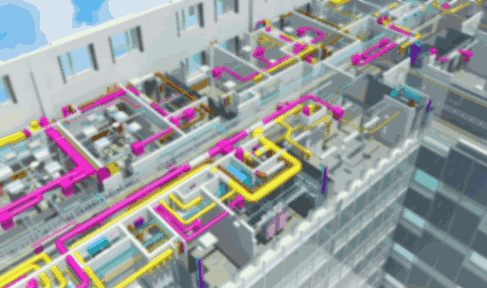


One of the primary objectives of MEP engineers in healthcare design is to create a comfortable and safe environment for patients, staff, and visitors.
[ Sydney, Australia- Nov-2024]
The Role of MEP Engineers in Healthcare Facility Design: Enhancing Efficiency, Safety, and Patient Care
Healthcare facilities are among the most complex structures to design and build. They require meticulous planning, advanced technology integration, and a strong focus on safety, efficiency, and comfort. At the heart of this process lies MEP (Mechanical, Electrical, and Plumbing) engineering, which plays a critical role in ensuring these facilities meet the stringent demands of modern healthcare.
Understanding MEP Engineering in Healthcare
MEP engineering involves designing and implementing systems that are essential for the functionality of a building. In healthcare facilities, these systems are even more crucial as they directly impact patient care, operational efficiency, and regulatory compliance. From climate control and electrical systems to water management and medical gas distribution, MEP engineers are integral to the design, construction, and maintenance of hospitals, clinics, and other healthcare environments.
Key Roles and Responsibilities of MEP Engineers
1. Ensuring Patient Comfort and Safety
One of the primary objectives of MEP engineers in healthcare design is to create a comfortable and safe environment for patients, staff, and visitors. This involves:
HVAC Systems: Designing efficient heating, ventilation, and air conditioning systems that maintain optimal temperature and humidity levels while ensuring proper air filtration to prevent the spread of airborne infections.
Lighting Design: Implementing appropriate lighting systems that support patient recovery and staff productivity, including specialized lighting for operating rooms and diagnostic areas.
Backup Power Systems: Establishing reliable electrical systems with redundancies such as generators and uninterruptible power supplies (UPS) to ensure uninterrupted operation of critical medical equipment.
2. Supporting Medical Technology
Modern healthcare facilities rely heavily on advanced medical equipment and technologies. MEP engineers design the infrastructure to support these technologies, including:
Power Supply for Medical Devices: Ensuring a stable and uninterrupted power supply to life-saving equipment such as ventilators, MRI machines, and surgical robots.
Data Infrastructure: Developing systems to support telemedicine, electronic health records (EHR), and other digital health solutions that require robust IT and communication networks.
3. Designing for Specialized Healthcare Needs
Each area of a healthcare facility has unique requirements that MEP engineers must address:
Operating Rooms: Precision climate control and sterile air systems to maintain a controlled environment.
Pharmacies and Laboratories: Specialized plumbing and electrical systems to support sensitive equipment and processes.
Patient Rooms: Comfortable climate and noise control to enhance the healing environment.
4. Ensuring Compliance with Healthcare Standards
Healthcare facilities are subject to rigorous codes and regulations, including standards set by organizations like ASHRAE, NFPA, and local health departments. MEP engineers ensure that designs meet these standards, addressing factors such as:
Infection control measures through effective air circulation and water management.
Fire safety systems, including alarms, sprinklers, and emergency exits.
Accessibility and safety compliance for patients and staff.
Innovations Driving MEP Engineering in Healthcare
The healthcare industry is evolving rapidly, and so are the approaches to MEP design. Recent innovations include:
Energy Efficiency: Incorporating sustainable design elements such as solar panels, energy-efficient HVAC systems, and LED lighting to reduce operational costs and environmental impact.
Building Information Modeling (BIM): Leveraging BIM technology for precise planning and coordination of MEP systems, reducing errors and construction delays.
Smart Building Technologies: Integrating IoT-enabled systems to monitor and optimize facility performance in real time, improving energy management and system reliability.
Case Study: Transforming Healthcare Design Through MEP Excellence
Consider a recent hospital project where MEP engineering played a transformative role. The design team collaborated with healthcare professionals to develop state-of-the-art HVAC systems that maintained sterile environments in operating rooms and isolation wards. By incorporating energy-efficient solutions, the facility reduced its energy consumption by 30% while ensuring patient safety and comfort.
The project also integrated advanced electrical systems with redundancy features, ensuring uninterrupted operation of critical medical equipment even during power outages. This holistic approach not only enhanced the hospital’s functionality but also positioned it as a leader in sustainable healthcare design.
Looking Ahead: The Future of MEP Engineering in Healthcare
As the healthcare sector continues to grow and innovate, the role of MEP engineers will become even more pivotal. Emerging trends such as telehealth, wearable technologies, and AI-driven diagnostics will require facilities to adapt their infrastructure rapidly. MEP engineers will need to design systems that are not only efficient and reliable but also scalable and future-proof.
Moreover, with the increasing focus on sustainability, engineers will continue to explore ways to minimize environmental impact while maintaining the highest standards of care.
Conclusion
The role of MEP engineers in healthcare facility design goes far beyond technical expertise. They are problem-solvers and innovators, creating environments where patients can heal, and healthcare professionals can perform at their best. By combining cutting-edge technology with a deep understanding of healthcare needs, MEP engineers ensure that every element of a facility works harmoniously to support the ultimate goal: delivering exceptional patient care.
As the healthcare landscape evolves, MEP engineers will remain at the forefront, shaping the future of medical infrastructure and enabling the delivery of advanced, patient-centered care.
